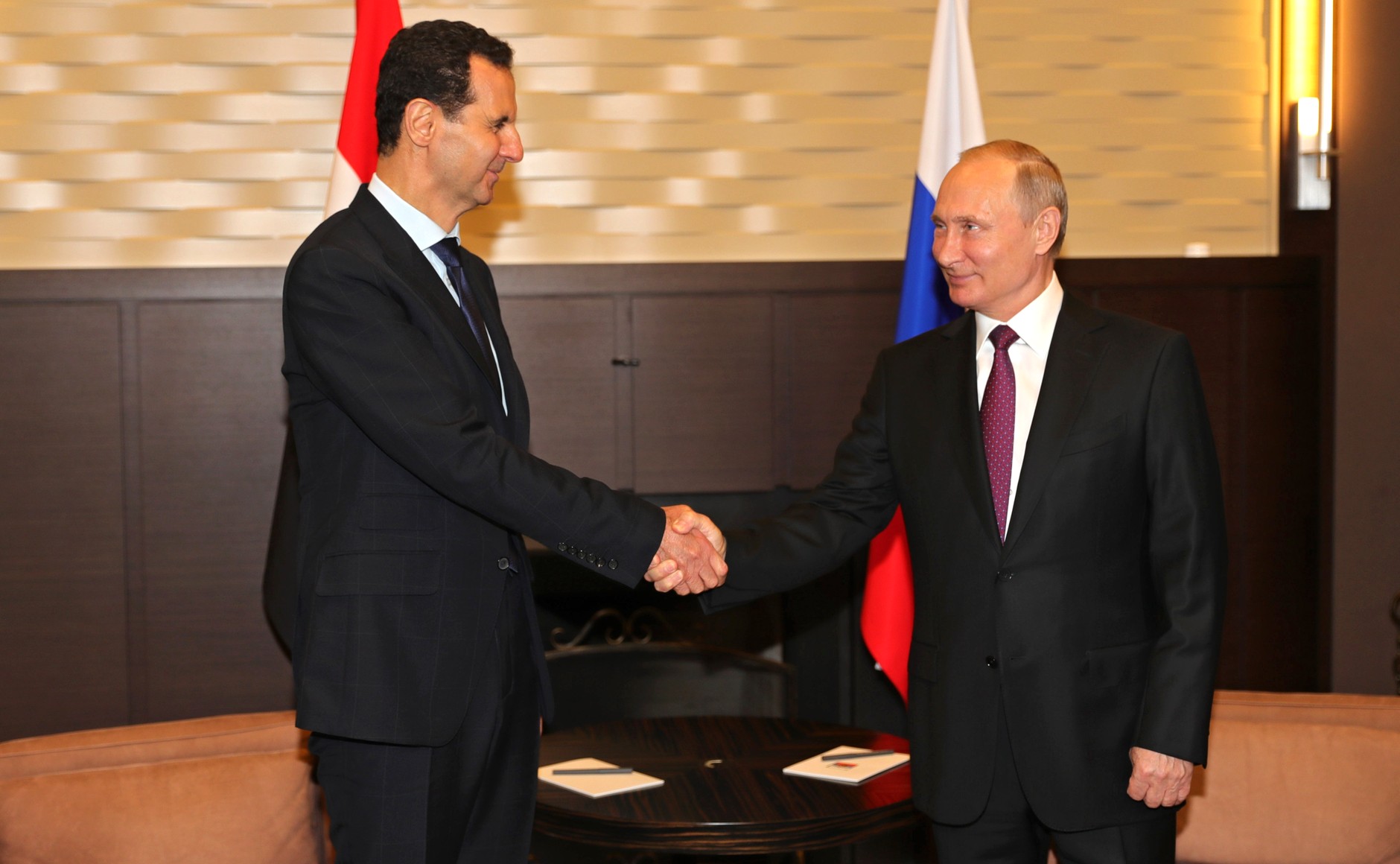The fall of the Al-Assad regime signifies a major blow to Russia’s desire to establish itself as a power broker in the MENA region. This blog will explore whether the fall of Al-Assad is a sign of Russian influence in MENA or a temporary setback.
The fall of Bashar Al-Assad’s regime at the hands of Hayat Tahrir Al Shams (HTS) on December 8th, 2024, has been seen by many as a shocking development considering the regime had control of a majority of Syria by the time of its demise. Naturally, this development would have numerous implications for the stakeholders involved in the Syrian Civil War. However, Russia stands to lose the most, as Syria has long served as its strategic foothold in the Middle East. Assad’s downfall significantly undermined Russia’s prestige and its role as a potential power broker in the region. The critical question is now whether the fall of the Syrian regime is a sign of declining Russian influence in the region or is it a temporary setback that Russia can eventually recover from.
Potential Decline of Russian Influence in the MENA Region
Russia viewed Syria not only as a strategic ally but also as a gateway to the MENA region. Russia’s support of Syria and the Al-Assad regime is best exemplified by the 2015 Russian intervention in the Syrian Civil War, which enabled Russia to position itself as a security guarantor and power broker in the MENA region. The Russian intervention in Syria had implications throughout the MENA region, allowing Russia to project the image that it could be an alternative partner in the region as opposed to the US. Although Russia expanded its influence in the MENA region, concerns emerged regarding the sustainability of Russian gains in the long run. Dmitriy Frolovskiy mentioned that while Russia was able to make gains in the MENA region, these gains were unsustainable, as they were brought about by a “…retreat of the West…” which could be reversed at any moment.
While Russia maintained its influence in the MENA region during the Obama and Trump eras, the Russian invasion of Ukraine led to a shift of Russian resources from Syria to Eastern Europe, leaving Syria in a vulnerable position. As a result, the Al-Assad regime, without its biggest benefactor, became a sitting duck, which proved true when HTS took over Syria and ousted Al-Assad within less than a week. This rapid collapse exposed the reactive nature of Russia’s policy in the region, dealing a severe blow to its credibility as a power broker and security guarantor for MENA states. Given that Russia’s strategy in the region was centered on ensuring regime stability, Assad’s fall has undoubtedly shaken the confidence of its regional partners. Beyond losing face with the MENA states, Russia’s geopolitical positioning in the region is also under threat. The loss of Syria endangers Russia’s strategic assets, most notably Russia’s naval base in Tartus, which serves as its only naval base in the Mediterranean. Tartus allows Russia to have access to North and Sub-Saharan Africa for resupply efforts and military transit. The loss of Tartus would leave Russia with a weakened influence in North Africa, which can have consequences for its military presence globally.
A Temporary Setback?
While the fall of Syria may represent a decline of Russian influence in the MENA region, it could be seen as a temporary setback. Russia will need to re-evaluate its MENA policy for any hope of having a future in the region. One potential way would be to shift the focus to Libya, where Russia can still have access to the Mediterranean and Africa. Russia can also regain favour with the MENA states by employing soft power methods at a time when the US is still viewedpragmatically.
Although the fall of Syria can be considered a setback, there are challenges that may prevent Russian resurgence in the region. One challenge is Chinese involvement in regional affairs in MENA. Chinese influence is evident through the development of relations with the Gulf States as well as the normalization of Saudi-Iran relations in 2023. Moreover, the destruction of Gaza is being used by China to further its attempts at promoting its image as a regional mediator for MENA conflicts. China’s advancements may hinder Russia’s ability to resurge in the region in the future.
Conclusively, it can be said that Russian influence declined due to losing Syria as a foothold in the region. The fall of Syria resulted in Russia losing access to the Mediterranean and shook the confidence of Russia’s MENA partners. Russia’s retreat from MENA could have implications for Europe and Switzerland, as a more aggressive Russia in Ukraine can force Switzerland to revisit its neutrality.





